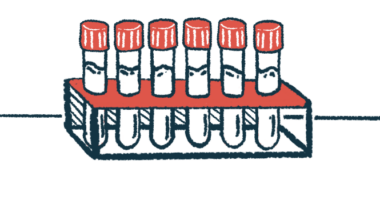On Rare Disease Day, our advocacy can help us advance
Greater education about our conditions may help us thrive, not just survive

Rarely have I not received the best treatment available for my SMA. Doctors and nurses have been proactive in giving me aggressive care to prevent me from getting sick. But when I do, my medical team, including my mom, is aggressive enough in its care to prevent me from going to the hospital or dying.
I also have superb equipment at my disposal, including a ceiling lift, vest percussion machine, and cough assist. One of my most vital pieces of equipment is my standing brace. I use it to take steps with the help of a physical therapist three times a week.
My nutrition, which I take through a gastrostomy tube in my stomach, is second to none. It’s meticulously planned out by dietitians, and I can’t tell you how many people have told me they wished they had a diet like mine.
All of this wasn’t handed to me. It took advocacy — a lot of it, in fact — by myself, my mom, and many others. This makes me want to show my heartfelt gratitude toward those who have fought for me. Let’s not be naive, though; there’s a whole lot more urgent work in advocacy to be done in my life, and the lives of so many others with rare diseases.
Where advocacy can improve
According to Medicaid policy in my state, for example, those who receive home healthcare through the private duty nursing program (PDN) must have a backup caregiver. This part of the policy makes perfect sense. Many people use a family member as a backup caregiver; in my case, that’s my mom.
The part of the policy that doesn’t make sense is that my mom, the caregiver, has to work full time for her actual job until she’s 80 for me to continue to receive the same amount of PDN hours per week. I need all of my nursing hours to survive.
My mom isn’t 80, but she’s worked hard as a hospital nurse for over 30 years. She’s paid her dues. If she went part time instead of full time, my nursing hours would be drastically reduced. Medicaid policy would rule that since she isn’t working as many hours, she can take over more of my care from the nurses.
If that happened, my mom would be trading one full-time job for another, because my care is 24/7, day and night. We have no other relatives around who’d be able to help.
Again, my mom isn’t 80, but her body doesn’t have the energy to take care of me most of the day and night.
In this situation, policymakers are uneducated about all the hard work that goes into home healthcare. Some of them might think that much of it entails nurses just turning their patients in bed every two hours and making sure they take their meds.
If that’s truly what some policymakers think, then I can’t half-blame them for being so misinformed. Why? Because most of the medical community itself don’t know what home healthcare involves. If they did, then every time I or someone else loses a nurse, we’d have at least four or five others at the door, ready to take their place. Instead, we practically hear crickets chirping as we wait years to find a replacement.
Sometimes advocacy is about advertising, and home care has little of it. My mom and I called at least 43 nursing agencies in my area last year to find a nurse. Of those, I saw only one agency that had a TV commercial, about 10 years ago. I realize that only the largest agencies can afford a commercial, yet if smaller ones did fundraisers to buy TV ads or other forms of advertising, who knows what they could accomplish?
As we observe Rare Disease Day on Feb. 28, we can celebrate how far we’ve come in our medical and technological advancements, especially with Evrysdi (risdiplam) and other therapeutic medicines. These help us survive. However, let our celebrations remind us that those of us with rare diseases want to thrive, not just survive. We must advocate so that policy and community services can help us do so.
My belief is that most people will help us once they’re educated. So let’s shine the light of knowledge and hope. After all, hope is what having a rare disease is all about!
Note: SMA News Today is strictly a news and information website about the disease. It does not provide medical advice, diagnosis, or treatment. This content is not intended to be a substitute for professional medical advice, diagnosis, or treatment. Always seek the advice of your physician or other qualified health provider with any questions you may have regarding a medical condition. Never disregard professional medical advice or delay in seeking it because of something you have read on this website. The opinions expressed in this column are not those of SMA News Today or its parent company, Bionews, and are intended to spark discussion about issues pertaining to spinal muscular atrophy.









Julie JOY!
Thanks, Ari, for educating us about things most of us never even knew were going on. What home health care providers do for various patients is definitely not one-size-fits-all. You're helping us (and legislators!) learn that. May the Lord continue to bless you and provide for you. Your grateful heart is such an encouragement. JOY!
susie Crute
Hi Ari! I am just SO late...I'm sorry! I knew so little of what you taught us this time, and I've known you almost 20 years! I could see in my mind how far you, and your Team, have come, and as you tell the story, what needs to happen! I am more grateful for your nurses and the organizations they represent! I will pray more for your mom! She was one of the first people I met here at HOI! There were about 5 of us with Miriam on Tuesday nights! I have 2 'favorite parts' this time: I never knew that you had a 'standing brace', that you can take steps! Yay! And your last line, 'Hope is what having a rare disease is all about!' May God continue to bless and anoint the ministry He has given you! Always, Susie